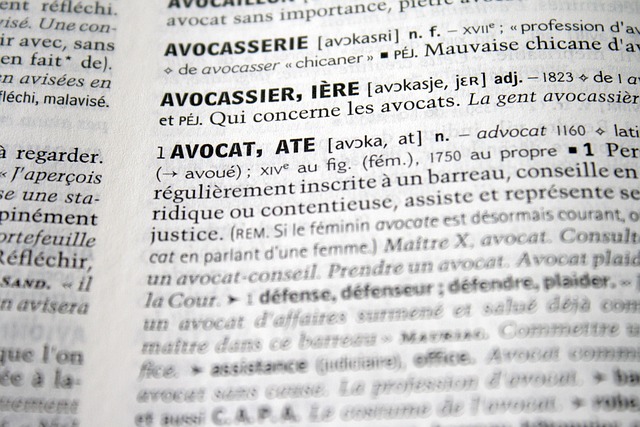Drug possession laws vary widely by state, making Legal Approaches for Defending Drug Possession cases complex. Skilled attorneys specialize in exploiting technicalities, disputing evidence collection methods, and offering alternative explanations. They monitor case precedents and legislative changes to build robust defenses. Common strategies include challenging search legality, discrediting informants or lab results, and arguing personal use over distribution. A meticulous approach is vital for mitigating consequences, ensuring fairness, and providing a strong defense in high-stakes cases.
In the realm of criminal law enforcement, understanding and navigating drug possession laws is paramount. This article delves into the intricate details of legal approaches for defending against drug possession charges. From comprehending the nuances of drug possession statutes to exploring robust legal defenses and strategic courtroom strategies, this guide offers valuable insights. Additionally, we examine the role of evidence in drug cases and post-conviction relief options, providing a comprehensive resource for those seeking to protect their rights.
- Understanding Drug Possession Laws
- Legal Defenses Against Possession Charges
- The Role of Evidence in Drug Cases
- Strategic Approaches for Courtroom Defense
- Post-Conviction Relief Options for Drug Possession
Understanding Drug Possession Laws

Drug possession laws vary greatly from state to state, with different classifications for various substances. Understanding these legal definitions is crucial when navigating legal approaches for defending drug possession cases. What might be considered a small personal use quantity in one jurisdiction could be classified as a more significant offense in another.
Knowing the nuances of these laws, especially at each stage of the investigative and enforcement process, is key to building a robust general criminal defense. Skilled attorneys specialize in uncovering technicalities, challenging evidence collection methods, and exploring alternative explanations for seemingly incriminating circumstances. They also stay abreast of case precedents and legislative changes that can significantly impact drug possession cases.
Legal Defenses Against Possession Charges

When facing drug possession charges, individuals often seek legal approaches for defending themselves, especially in high-stakes cases where winning a challenging defense verdict could be transformative. Legal defenses against possession charges can vary widely depending on the specific circumstances of the case and local laws, but several common strategies emerge. One prominent approach involves challenging the legality of the search or seizure that led to the drug’s discovery. If law enforcement officers conducted an unlawful search without a valid warrant or violated the defendant’s Fourth Amendment rights, evidence obtained as a result may be excluded in court.
Additionally, defendants can present evidence that discredits the reliability of informants or challenges the accuracy of lab test results. In some cases, individuals with prior criminal records may argue that their possession was for personal use rather than distribution, thereby invoking mitigating circumstances. Philanthropic and political communities often play a role in supporting those accused, offering resources, and advocating for reforms that can make these high-stakes cases more just and equitable.
The Role of Evidence in Drug Cases

In drug possession cases, evidence plays a pivotal role, demanding meticulous handling and a deep understanding of legal protocols. Law enforcement agencies employ various methods to gather proof, from surveillance and search warrants to physical and digital forensics. However, with such high-stakes cases, ensuring the integrity and admissibility of evidence is paramount. The goal for any accused individual should be not only to challenge the gathering process but also to explore legal approaches for defending against drug possession charges.
Strategizing a defense involves navigating complex legal landscapes, including examining procedural errors in evidence collection and understanding constitutional rights related to search and seizure. A robust general criminal defense strategy can help avoid indictment by highlighting procedural flaws or insufficient proof of intent, especially when dealing with cases involving controlled substances. This meticulous approach is crucial in mitigating the potential consequences of drug-related accusations, ensuring fairness in the legal process, and providing a robust defense for individuals facing these challenging high-stakes cases.
Strategic Approaches for Courtroom Defense

In navigating the complex landscape of criminal law enforcement, strategic approaches for courtroom defense are pivotal, especially in cases involving drug possession charges. Legal professionals must employ a nuanced mix of evidence examination, witness cross-examination, and legal argumentation to mount a compelling defense. A thorough understanding of case law and regulatory frameworks is essential, as it enables lawyers to challenge the prosecution’s evidence and highlight procedural errors. By presenting well-researched and logical arguments, defendants can clear their names or secure more favorable outcomes in what often proves to be a challenging legal arena.
Across the country, winning challenging defense verdicts requires an unprecedented track record of successful case management and advocacy. Defense attorneys who stay abreast of evolving legal precedents and adapt their strategies accordingly are better positioned to achieve positive outcomes for their clients. Leveraging expert testimony, historical data analysis, and innovative legal theories can be game-changers in courtrooms, demonstrating a commitment to meticulous preparation and zealous representation.
Post-Conviction Relief Options for Drug Possession

Post-Conviction Relief Options for Drug Possession offer a range of legal approaches for defending against drug-related charges. In many jurisdictions, individuals convicted of drug possession may explore various strategies to seek relief, aiming to overturn their conviction or reduce their sentence. One key aspect is understanding that these cases often turn on the specific circumstances and evidence surrounding the arrest and subsequent search. A robust general criminal defense strategy can include challenging the admissibility of evidence, questioning the validity of a stop or search, and presenting an effective alibi or lack of knowledge regarding the illegal substance.
For his clients facing drug possession charges, legal professionals employ creative tactics to avoid indictment or secure more favorable outcomes. This may involve negotiating plea deals that offer reduced sentences, arguing for mitigating factors during sentencing, or even filing motions to suppress evidence if police procedures were deemed unlawful. These legal approaches are essential tools in navigating the complexities of criminal law enforcement, ensuring that justice is served while protecting the rights of those accused.
Understanding drug possession laws, navigating legal defenses, and utilizing strategic courtroom approaches are vital components of defending against drug possession charges. The role of evidence remains paramount in these cases, necessitating a keen eye for detail and thorough examination. By exploring post-conviction relief options, individuals convicted of drug possession can seek to overturn their verdicts and secure a brighter future. Embracing these legal approaches enables effective defense strategies, ensuring fairness and justice within the criminal justice system.






